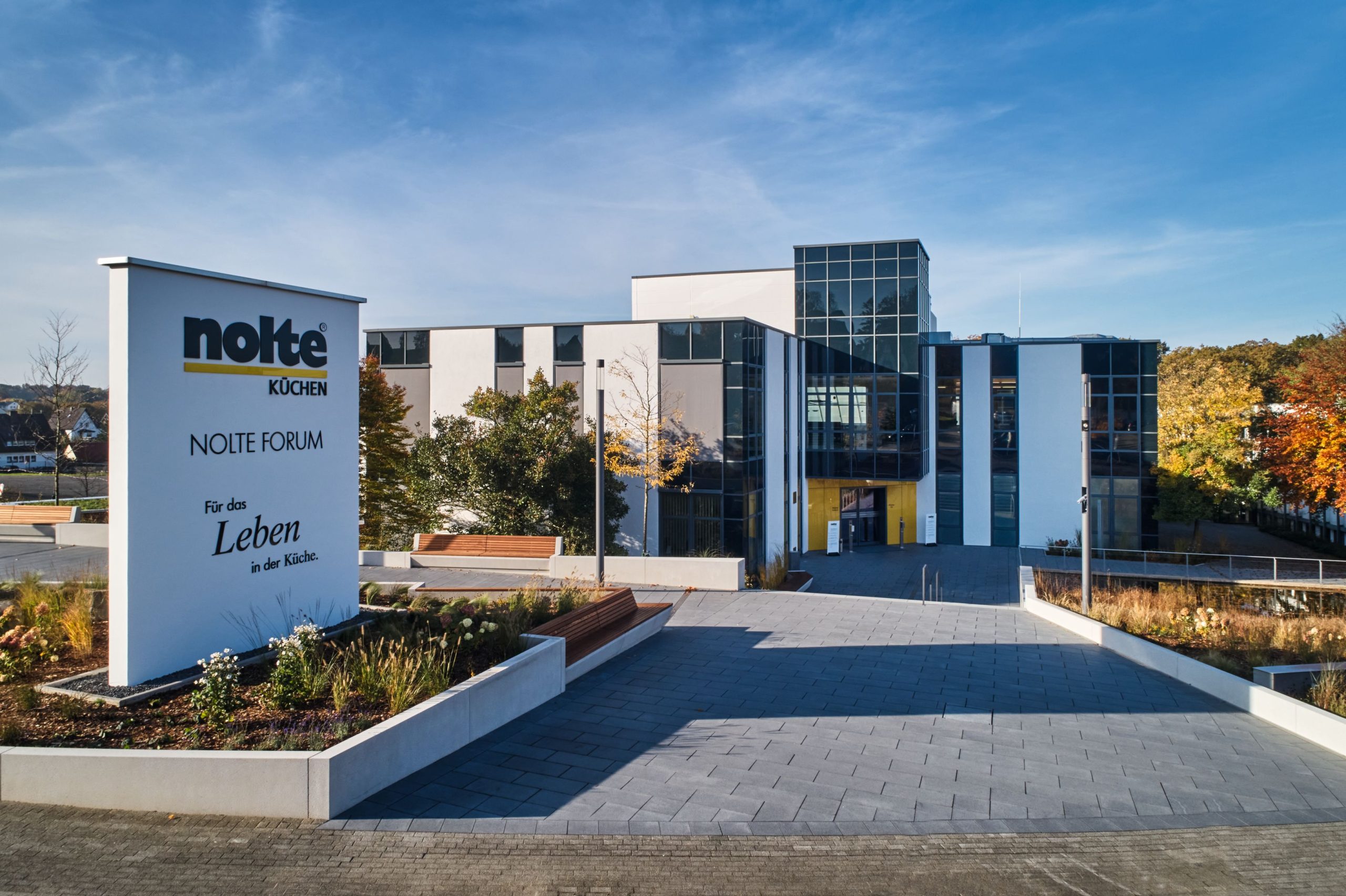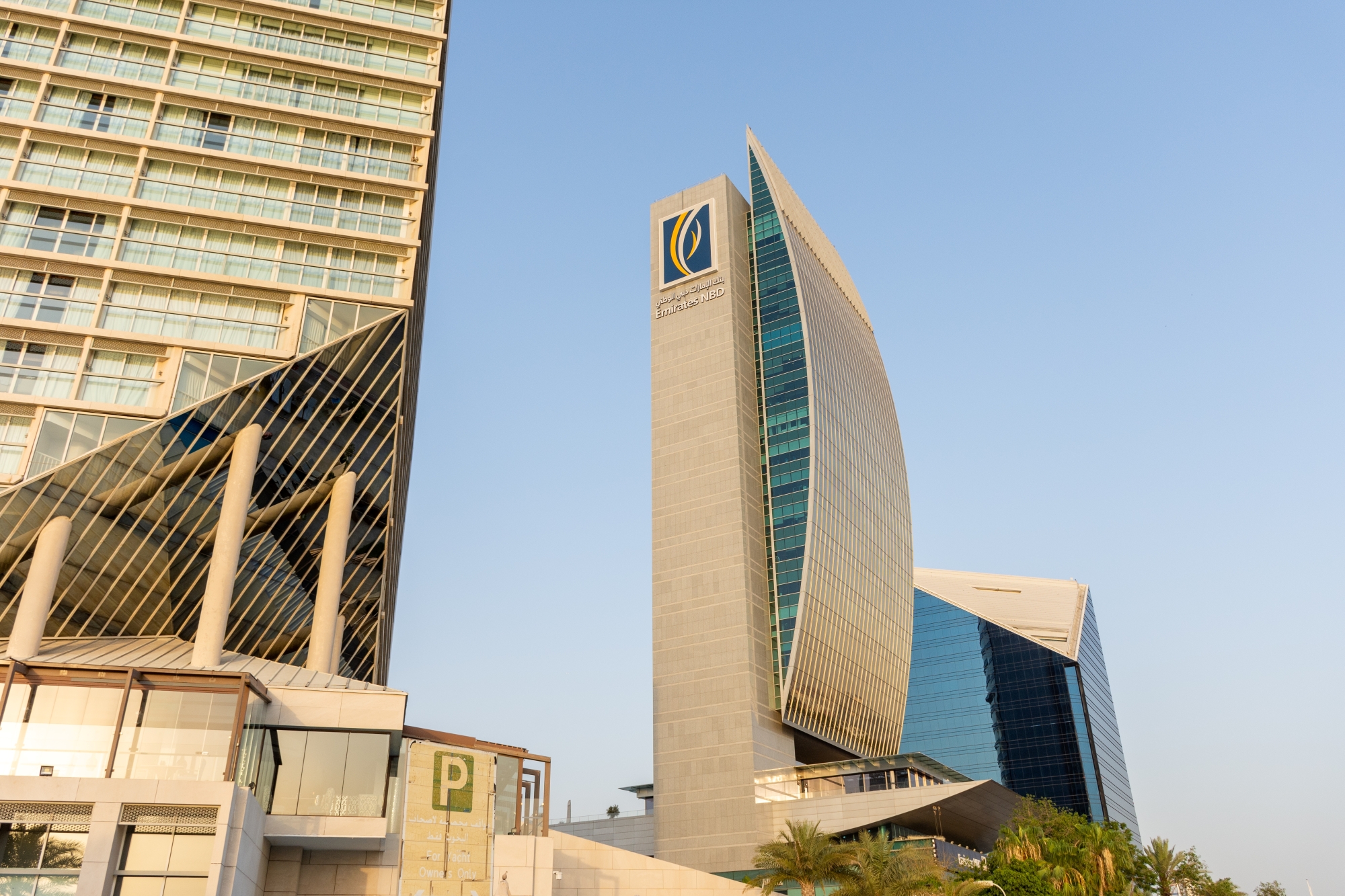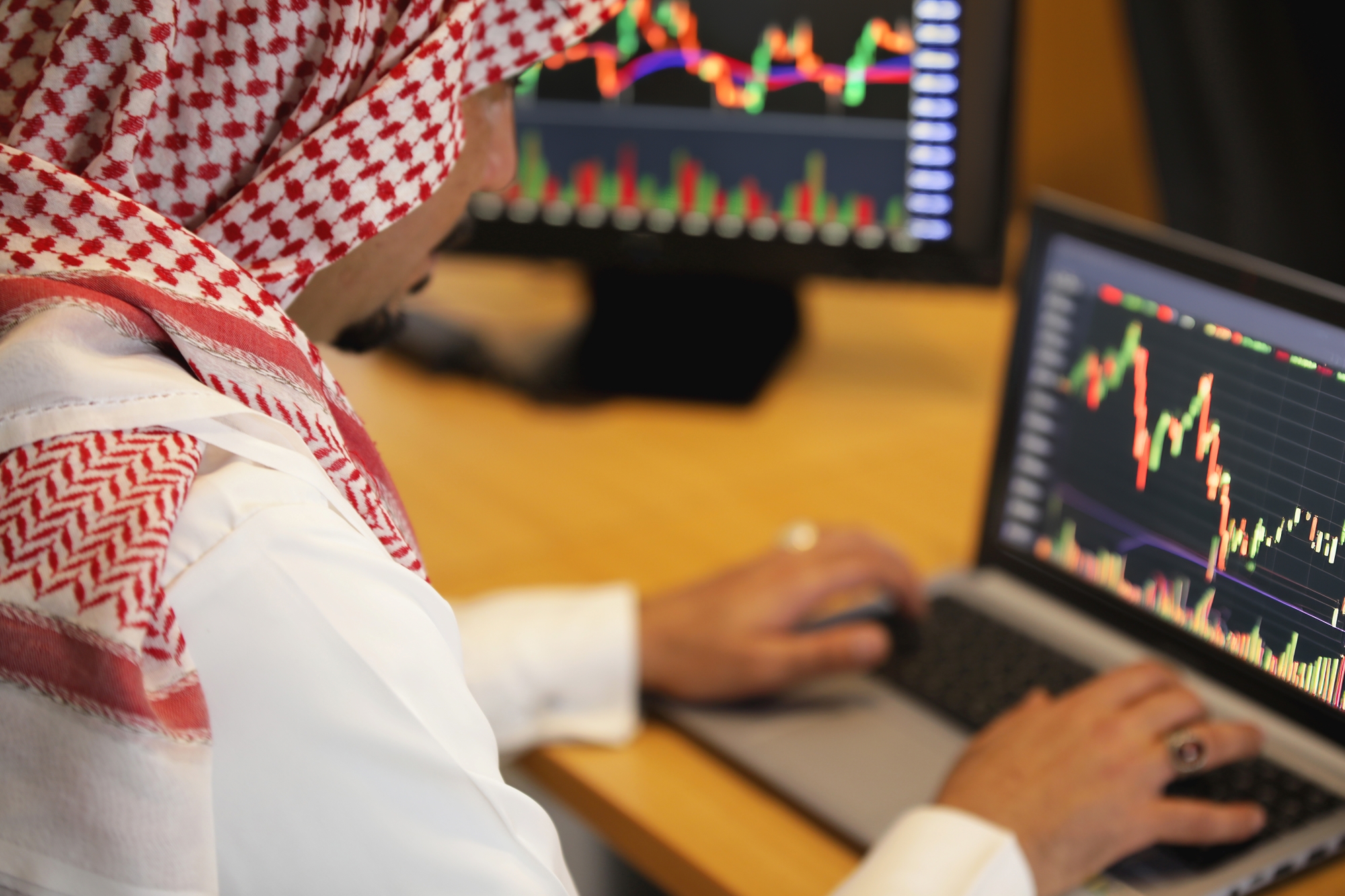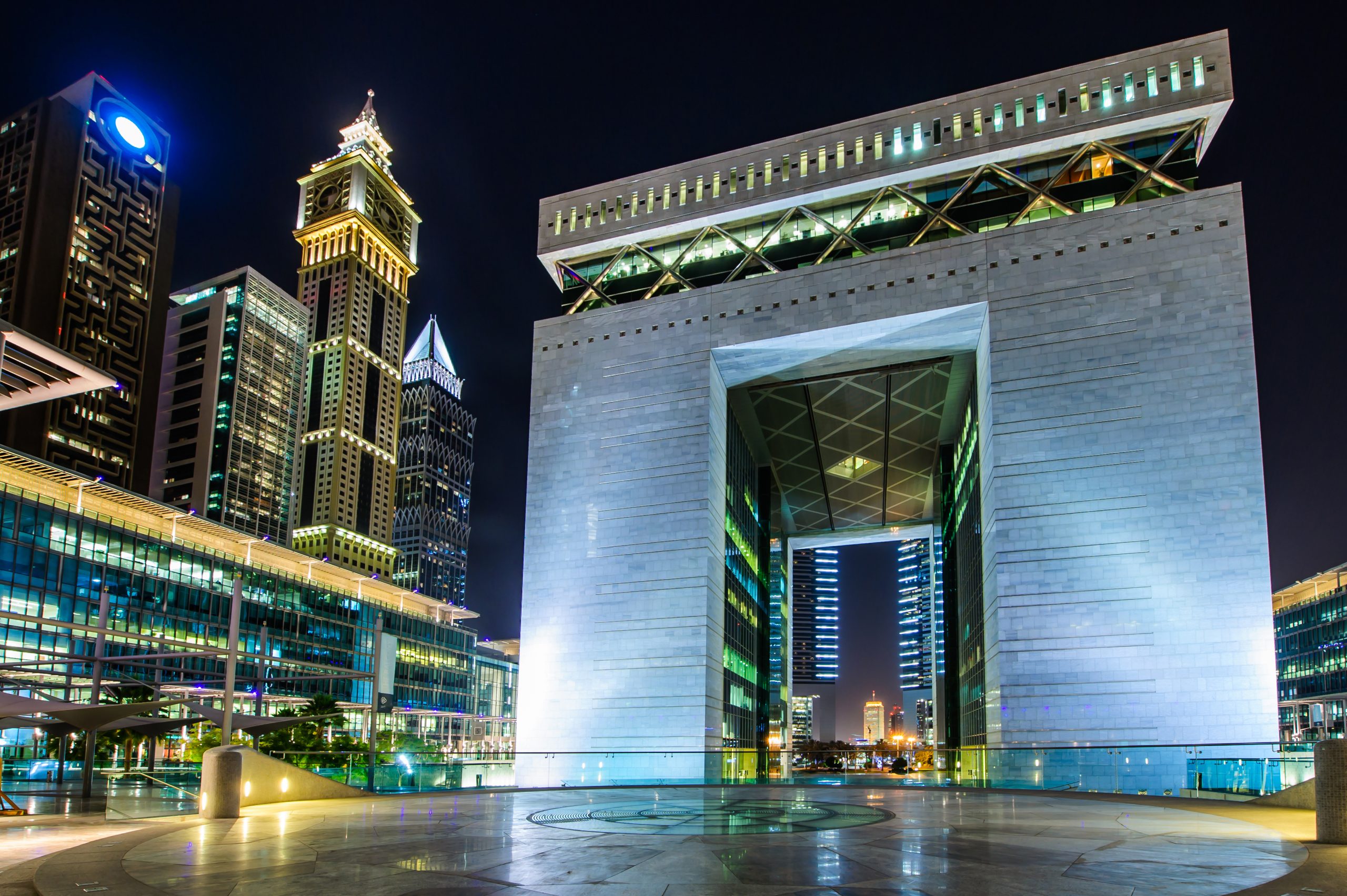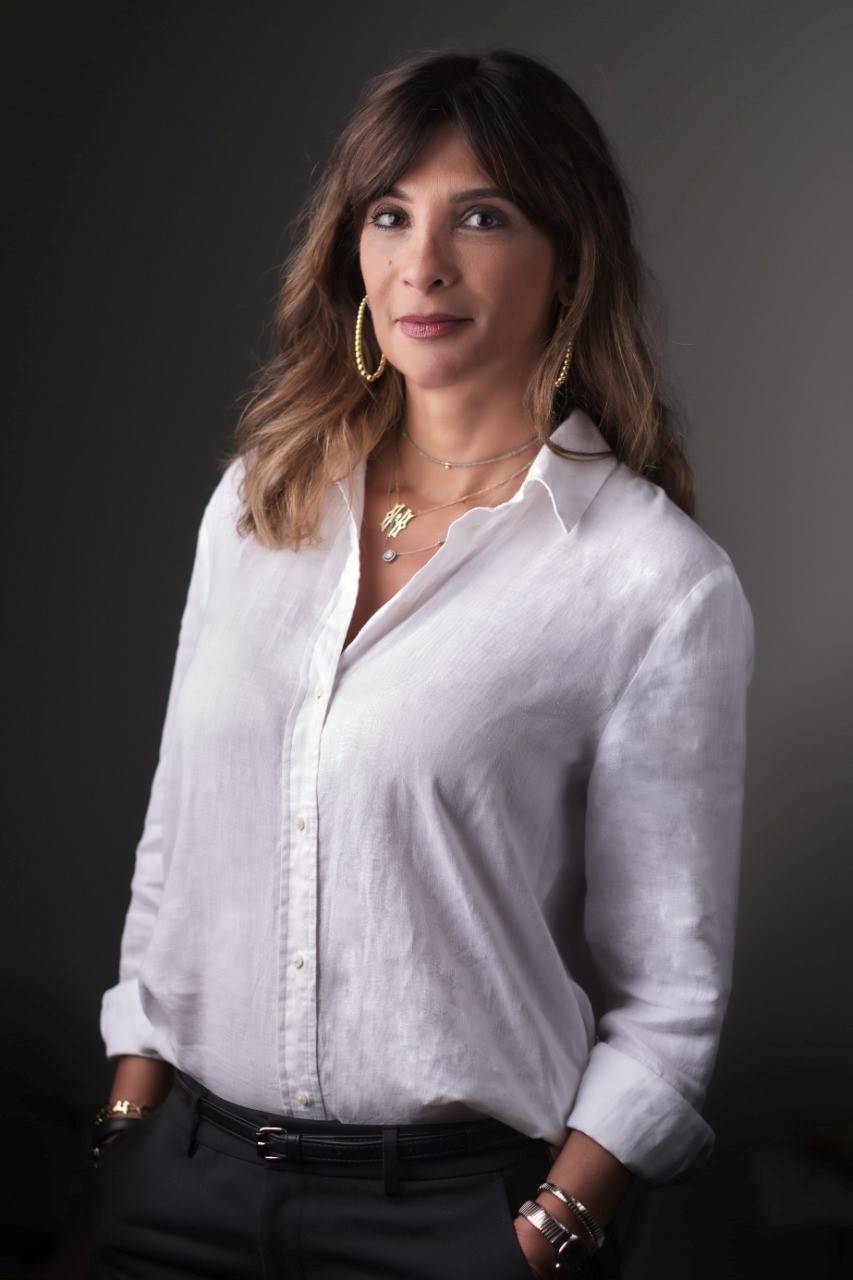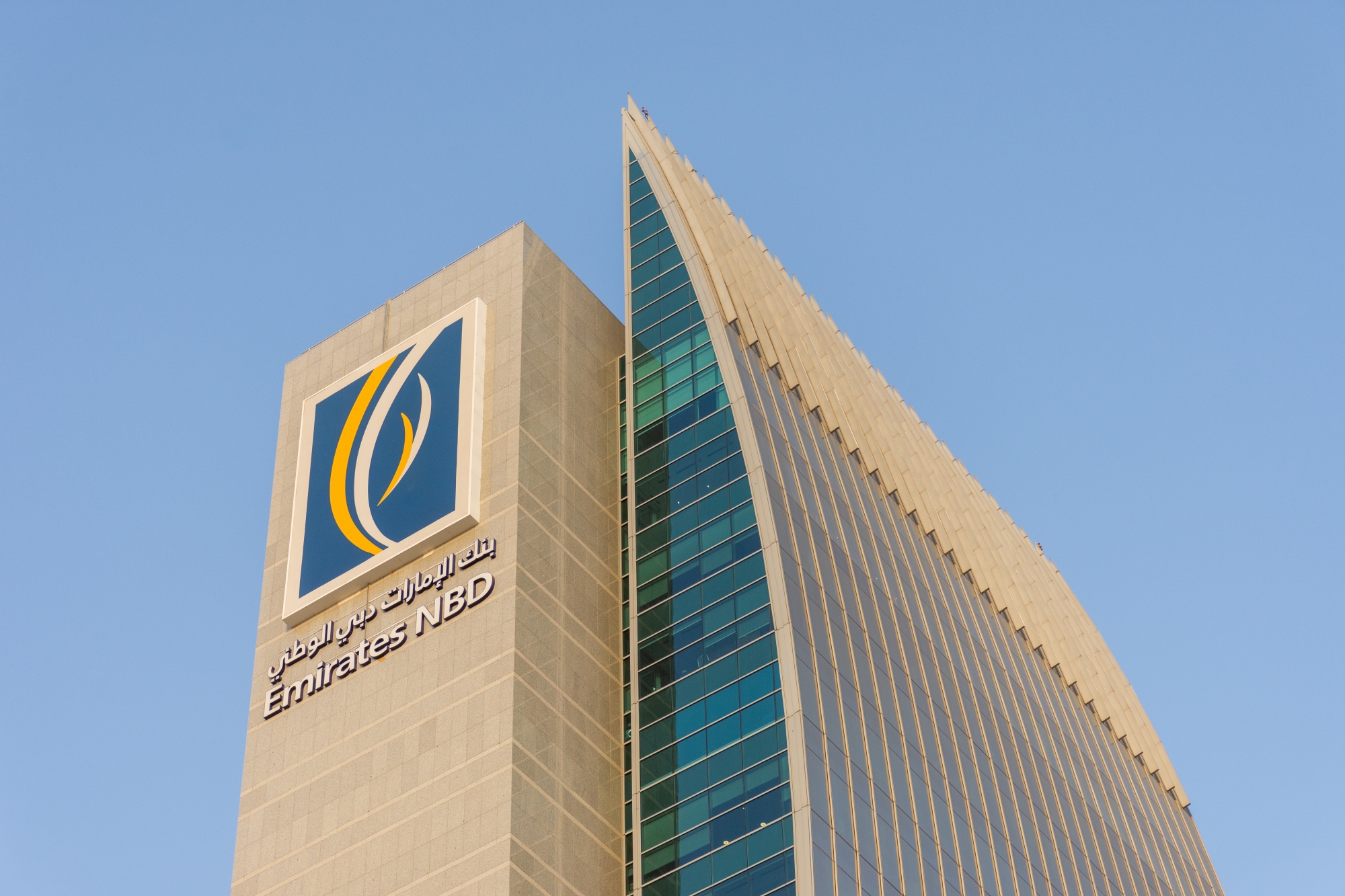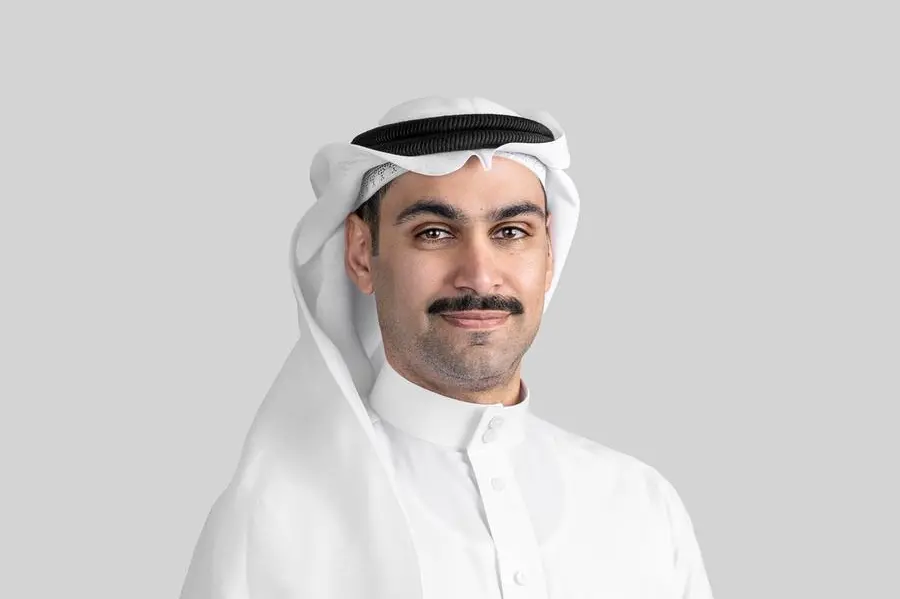Andreessen Horowitz Went All In on Crypto at the Worst Possible Time
Chris Dixon, a partner who led the charge, says he has a ‘very long-term horizon’
As cryptocurrency prices soared last year, no investor bet more on the sector than Andreessen Horowitz.
The storied venture-capital firm had developed a reputation as Silicon Valley’s greatest crypto bull, thanks largely to a 50-year-old partner named Chris Dixon who was one of the earliest evangelists for how the blockchain technology powering cryptocurrencies could change business. His unit was one of the most-active crypto investors last year, and in May announced a $4.5 billion crypto fund, the largest ever for such investments.
The timing wasn’t good.
Prices for bitcoin and other cryptocurrencies have plunged this year in the midst of a broad market downturn, erasing billions of dollars in paper gains for Andreessen’s funds. Consumer demand has vanished for some of the firm’s most-prized crypto startups, while others are facing increased scrutiny from regulators.
Andreessen’s flagship crypto fund shed around 40% of its value in the first half of this year, according to people familiar with the matter. That decline is much larger than the 10% to 20% drops recorded by other venture funds, which have largely avoided the risky practice of purchasing volatile cryptocurrencies, according to fund investors.
Despite the record cash pile, Andreessen has dramatically slowed the pace of its crypto investments this year.
Now Mr. Dixon has to convince nervous investors that Andreessen didn’t overplay its hand for the May fund, which other crypto venture capitalists said is too large for a sector headed into a so-called crypto winter.
“They’ve just pushed it so far with crypto that I’m not sure they can rebalance,” said Ben Narasin, a general partner at the VC firm Tenacity Venture Capital.
In an interview, Mr. Dixon said he remains faithful to the crypto-centric vision of the internet called Web3 that underpins Andreessen’s push into the sector—a view that blockchain versions for a range of services will return financial control and power to users in the form of cryptocurrencies they can earn and trade.
Mr. Dixon said that the sector is still in the early stages of acquiring users and that he isn’t sure when mass adoption of blockchain services will occur. Crypto “is about the political and governing structure of the internet,” he said. “We have a very long-term horizon.”
Mr. Dixon’s path from the periphery of Andreessen mirrors the firm’s transformation into a crypto powerhouse.
A coder from childhood who earned master’s degrees in both philosophy and business, he helped found and sell two startups—one in cybersecurity and the other in e-commerce—and co-founded the VC firm Founder Collective. He also nurtured interests in such emerging technologies as virtual reality and 3-D printing.
He joined Andreessen in 2012. The firm, founded three years earlier by Marc Andreessen and Ben Horowitz, was quickly becoming one of the biggest and most influential tech investors, driven by Mr. Andreessen’s famed mantra that “software is eating the world.”
When many major investors still dismissed bitcoin as little more than a haven for money launderers and speculators, Mr. Dixon championed its possibilities, penning blog posts—something of a gospel among young crypto entrepreneurs—that described how bitcoin would create a new, decentralised financial system. Within two years, Andreessen had invested almost $50 million into bitcoin-related projects, including the cryptocurrency exchange Coinbase.
Mr. Dixon’s zeal for the area increased with the 2015 launch of Ethereum, which used the same type of blockchain-based, distributed record-keeping to let developers build applications beyond payments. Mr. Dixon likened Ethereum’s arrival to the creation of the iPhone App Store and said it showed that the crypto-investing universe was larger than imagined. He told Messrs. Andreessen and Horowitz that he wanted to shift his focus away from traditional investing and start a dedicated crypto fund, said people familiar with the matter.
The $350 million crypto fund, launched in 2018, was the first of its kind created by a traditional venture firm. Andreessen remained a bull that year as bitcoin and other cryptocurrencies lost the majority of their value, and raised a second crypto fund in 2020 totalling $515 million.
Mr. Dixon and his team also increasingly touted their vision for Web3. They argued that blockchain’s creation of currency-like tokens for users could give them more control and financial benefit for blockchain-based versions of services such as ride-sharing and social media, undermining the power of dominant tech monopolies.
In addition to investing in crypto companies, Andreessen purchased the tokens they created, effectively betting separately on the company and its product. The unconventional strategy delivered windfalls during the crypto bull market but also made the deals riskier.
As of the end of last year, the first crypto fund had multiplied its initial investment by 10.6 times after fees, making it the best-performing fund on paper in Andreessen’s history, according to documents viewed by The Wall Street Journal.
Andreessen returned over $4 billion of shares to its investors in the two months after Coinbase went public through a direct listing in April 2021, public filings show, making it one of the most-lucrative bets ever made in venture-capital history. Andreessen’s third venture fund, which backed Coinbase in 2013, saw a paper gain of 9.7 times after fees as of Dec. 31, trailing only the first crypto fund in terms of performance at the time, the documents showed.
Buoyed by the returns, Andreessen went on a fundraising blitz. It set out to raise $1 billion for its third crypto fund and ultimately raised $2.2 billion in June 2021.
Mr. Dixon said the crypto team’s strategy was to use its cash pile to write large checks into startups promising to reinvent everything from digital art to online gaming using the blockchain. The aggressive approach often precluded it from coleading rounds with other investors and made the firm a significant shareholder.
Andreessen backed 56 U.S.-based crypto deals last year and was the second-largest crypto funder in terms of investment volume after Coinbase Ventures, according to PitchBook Data Inc. Some early investments seemed to take off. The valuation of OpenSea, a nonfungible token marketplace, soared by over 100 times to $13 billion in January 2022, ten months after Andreessen led an early funding round.
In its push to dominate the sector, Andreessen discarded established investment norms. In November, its investors tried—and failed—to invest in Magic Eden, an NFT marketplace, even though the firm already backed OpenSea, said people familiar with the matter. Venture capitalists have long avoided backing potential rivals because it damages their reputation with founders who dislike the practice. Mr. Dixon said the fund doesn’t back companies that directly compete with its existing portfolio.
Within months, the market turned.
Demand for many Andreessen-backed companies vaporised as users dumped their crypto holdings. OpenSea’s monthly trading volume has plummeted since its December funding round in the midst of a broader collapse in the market for NFTs, while Coinbase’s monthly active users declined 20% in the second quarter from last year’s fourth-quarter peak of 11.2 million. Both companies have cut around one-fifth of their staff this year.
Andreessen is also contending with harsher regulatory scrutiny of crypto startups and the funds that backed them, which is threatening to put an end to the era of loose oversight that enabled the creation of thousands of cryptocurrencies.
The firm is making adjustments. It announced nine crypto startup deals in the third quarter, down from a high of 26 crypto deals in the fourth quarter of last year, according to PitchBook. The firm also marked down the value of its second and third crypto funds this year, though the declines aren’t as severe as what the first crypto fund endured, people familiar with the matter said.
Meanwhile, the firm’s crypto investments are plunging. Solana, an upstart cryptocurrency that the firm bought in June 2021, has shed over 80% of its value since the beginning of the year. In the first six months of this year, Andreessen lost $2.9 billion of its remaining stake in Coinbase as the crypto exchange’s stock price cratered by more than 80%.
Mr. Dixon said the market’s downturn is an opportunity for the fund to continue backing crypto entrepreneurs, similar to what it did in previous down markets.
“What I look at is not prices. I look at the entrepreneur and developer activity,” Mr. Dixon said. “That’s the core metric.”
 Copyright 2020, Dow Jones & Company, Inc. All Rights Reserved Worldwide. LEARN MORE
Copyright 2020, Dow Jones & Company, Inc. All Rights Reserved Worldwide. LEARN MORE
Gulf Bank won the “Best Next Generation Program” award at the 2025 MEED Banking Excellence Awards in Dubai, recognizing its innovative banking solutions that empower young entrepreneurs and next-generation investors across Kuwait.
Nolte Küchen, Germany’s leading premium kitchen brand, is expanding in the UAE under its new entity Nolte UAE, investing AED 25 million to launch a flagship showroom by 2026 and strengthen its direct presence — reaffirming its “Made in Germany” quality, innovation, and sustainability.
Emirates NBD to acquire a 60% stake in India’s RBL Bank for $3 billion, marking the largest cross-border deal in India’s financial sector and reinforcing the UAE bank’s expansion across high-growth markets.
J.P. Morgan’s 2026 Long-Term Capital Market Assumptions mark 30 years of research, projecting a 6.4% return for 60/40 portfolios and 6.9% with alternatives. The report highlights resilience amid AI innovation, economic nationalism, and fiscal shifts, emphasizing diversification and active management to build future-ready portfolios.
J.P. Morgan Asset Management today released its 2026 Long-Term Capital Market Assumptions (LTCMAs), providing a comprehensive 10-15-year outlook for returns and risks across asset classes as the forces that drove volatility in recent years abate.
George Gatch, CEO of J.P. Morgan Asset Management comments, “J.P. Morgan is differentiated by the longevity and long-term perspective that we bring to our active management. With 30 years of producing Long-Term Capital Market Assumptions, we consistently offer essential guidance to clients ranging from institutional investors to high-net-worth individuals. As our clients face a rapidly evolving investment landscape, the LTCMAs share the insights of over 100 experts, equipping them to build resilient portfolios in an era of moderate growth, rising economic nationalism, and rapid AI-driven innovation.”
In this 30th edition of the LTCMAs, the forecast annual return for a USD 60/40 stock-bond portfolio over the next 10–15 years remains attractive at 6.4%. Even after a year of strong equity market gains, asset return projections remain robust. Although labor constraints weigh on the long-term growth outlook, we believe AI adoption will provide a near-term boost to profits and a longer-term boost to productivity. The report spotlights the opportunities to boost diversification through global equities and alternatives, particularly real assets. For investors embracing a 60/40+ portfolio, with 30% in diversified alternatives, the projected return jumps to 6.9% and the Sharpe ratio gets a 25% lift over the simple 60/40 approach.
“Our 30th anniversary Long-Term Capital Market Assumptions reflect on three decades of market evolution and look ahead to a future shaped by technology, shifting policy, and new asset classes,” said John Bilton, Head of Global Multi-Asset Strategy, J.P. Morgan Asset Management. “The economic landscape is shifting palpably. But, in our view, much of what worries investors today will ultimately pale beside the silver linings we see breaking through over the long run.”
“The global economy is adapting to a new set of realities, with fiscal activism, technological adoption, and demographic shifts driving both challenges and opportunities,” said Dr. David Kelly, Chief Global Strategist, J.P. Morgan Asset Management. “While growth in developed markets is expected to moderate, robust investment and productivity gains—particularly from AI—support a constructive long-term outlook.”
“For investors today, building resilience means going beyond the traditional. Investors need to think outside the box, embracing alternatives and real assets to manage risk and unlock new sources of return,” said Grace Peters, Global Co-Head of Investment Strategy for J.P. Morgan Private Bank. “Most importantly, anchoring your investments to a goals-based plan ensures your portfolio stays aligned and adaptable, so you can remain confident no matter how uncertain the environment.”
Key findings include:
- Resilience in markets despite slower growth: Despite a dip in growth projections due to changing labor market dynamics, asset return projections remain strong.
- Economic Nationalism is a challenge, not a showstopper: Trade frictions are making headlines, but also forcing some countries to boost domestic investment – a clear silver lining to the impact of tariffs.
- Technology continues to drive this bull market: Capital investment and technology spend continue to provide momentum for the broader market. Governments are stepping up, unleashing record stimulus and incentives.
- The AI boom is at a critical juncture: Adoption is surging, and investment is massive. Investors should pivot their attention to who will be the eventual winners and losers of new technologies, making active management key.
- Equity strength, but currency matters: After two years of 20% gains followed by another 14% so far this year, US equity performance has been exceptionally strong for USD-based investors. That said, EUR-based investors have been handed a double-edged sword, as the strength of the currency offset a very respectable rate of return from US stocks.
- Diversification isn’t optional, it’s essential: shifting policies and higher investment mean more volatile inflation. This demands smarter portfolios that use alternatives and real assets for resilience and returns. Manager selection is key to take advantage of this current environment of disruptive change.
The report also outlines the following asset class return assumptions:
- Fixed Income
- U.S. intermediate Treasuries are expected to return 4%, while long Treasuries are expected to return 4.9%.
- U.S. investment grade credit is forecast to return 5.2%, with spreads tightening due to a shortening of the maturity of debt issuance.
- U.S. high yield credit is expected to return 6.1%, with a fair value spread of 475bps, driven by higher credit quality.
- Equities
- U.S. large cap equities are expected to return 6.7%, holding steady from last year as the move from tech adoption to tech deployment broadens to other sectors and concerns over index concentration are expected to dissipate. The U.S. looks likely to remain the global leader in technology origination.
- Global equities are projected to return 7% (USD), with non-U.S. markets offering more attractive cyclical starting points and benefiting from currency appreciation.
- Emerging markets equities are expected to return 7.8% (USD), dipping modestly after strong performance this year.
- Alternatives
- Private Equity: The return assumption for private equity is 10.2%, reflecting a slight increase due to a more favorable exit environment and higher growth opportunities in technology and AI.
- Real Estate: U.S. core real estate is expected to return 8.2%, driven by attractive entry points and higher yields. European core real estate is forecast to return 6.9%.
- Infrastructure: Global core infrastructure is projected to return 6.5%, reflecting the essential nature of the services provided by this asset class through a shifting trade policy environment.
- Commodities: The return assumption for broad basket commodities remains at 4.6%, with the energy transition and geopolitical risks influencing the outlook. Gold is expected to return 5.5%, an increase from last year at 4.5%.
- Timberland: Global timberland is expected to return 6.3%, reflecting an increase from last year at 5.3%.
Three Decades of LTCMAs: From Spreadsheet to Global Standard
Celebrating its 30th anniversary, the LTCMAs reflect on three decades of extraordinary market evolution, including the internet revolution, the birth of the euro, the global financial crisis, quantitative easing, the pandemic, and the dawn of artificial intelligence.
What began as a modest spreadsheet for asset allocation has transformed into a globally relied-upon program, built on a rigorous research process that combines quantitative and qualitative insights from over 100 industry-leading portfolio managers, research analysts, and strategists worldwide.
Today, these time-tested projections cover more than 200 assets across 20 currencies, setting the standard for strategic asset allocation and long-term investment planning in an ever-evolving financial landscape.
Chris Dixon, a partner who led the charge, says he has a ‘very long-term horizon’
Americans now think they need at least $1.25 million for retirement, a 20% increase from a year ago, according to a survey by Northwestern Mutual
Saudi Arabia’s capital markets are booming, with record bond and IPO activity fueling Vision 2030’s investment drive and advancing diversification beyond oil.
Saudi Arabian capital markets are on a tear this year, with the number of bond and equity deals on course to break all records as capital pours into the country to finance trillions of dollars of investments in new cities, new industries – and (in theory at least) a new economy no longer dependent on oil.
Bond markets have led the charge, with 76 deals this year, up 77% on last year’s already record tally. The amount raised has surpassed US$70bn, which is up 40% on this point a year earlier, after US$20bn of deals from the Saudi government and US$8bn from oil giant Saudi Aramco.
Equity markets have also been on a roll, with 29 IPOs – a record for this point in the year – raising US$3.6bn amid a frenzy of buy orders. The US$1.1bn listing in May of airline Flynas was covered 100 times and the US$520m IPO of developer Umm Al Qura in March was covered 200 times.
While loan volumes are down on last year’s record, there has been some solid deal activity such as the US$7bn facility signed in January by Saudi sovereign wealth fund, Public Investment Fund.
As a result of all this activity, investment banks are set for a bumper haul in fees, with senior bankers pointing to Saudi as a particular highlight during a year that started slowly but has since taken off.
Critical role
Capital markets are slated to play a critical role in meeting the ambitious targets of the country’s transformational Vision 2030 program, announced amid much fanfare almost a decade ago. Moody’s predicts US$2trn of investment will be needed over the next four years if the country is to meet those goals.
“A growing economy and the financial demands of the mega projects underway are hoovering up cash faster than the domestic system can supply it,” said Nick Smallwood, a strategist at M&G, who says the country’s banking system is struggling to keep pace with the scale of investments.
It is little wonder given the size of some Vision 2030 projects. Neom, a futuristic city on the Red Sea, is projected to cost US$8.8trn to build, assuming it actually happens – 25 times the annual government budget. With demand for loans rising faster than deposits, banks are increasingly borrowing from abroad to keep up.
“The KSA complex is structurally increasing its reliance on international debt markets,” said Smallwood. “Banks are taking an ever greater share of Saudi issuance. KSA is therefore increasingly dependent on international investment to fund its domestic priorities.”
Acutely aware of the need to attract more capital, the country has signed multiple deals over recent months with the likes of BlackRock, Franklin Templeton, Goldman Sachs, Macquarie and State Street to unlock inflows. It has also broken into new markets, with bonds in euros, sterling and the green market.
Financial market instruments that are common in other countries but rarely or never seen in Saudi have also been launched. PIF launched a commercial paper program in June, while the Saudi Real Estate Refinance Company in August printed the country’s first ever residential mortgage-backed security.
Slow progress
But progress has not been as fast as hoped. When Vision 2030 was launched, there was talk of 150 state-owned companies being privatized, unlocking US$300bn for Vision 2030-linked investments. Huge excitement followed 2019’s record US$29.4bn IPO of Aramco – but the pipeline quickly dried up.
Years later, IPO activity has picked up but many deals have traded down sharply, indicating ongoing liquidity issues. Tellingly, the market capitalization of exchange operator Tadawul has actually fallen over the last three years, despite the surge in listings.
On the bond side, progress in expanding the market has also been slow – and dominated by government or quasi-government issuers. Last year, PIF and Aramco accounted for about 80% of all non-financial corporate issuance. Barely any private non-financial companies are tapping bond markets.
“An acceleration of cumulative private sector investment will be required by 2030 to sustain growth momentum,” said Aziz Al Sammarai, an analyst at Moody’s, who added that the need to finance projects like World Expo 2030 and FIFA World Cup 2034 should boost issuance.
“Strategic investments across sectors is likely to spur an increase in equity and debt issuance. Increased capital market activity will, over time, deepen Saudi Arabia’s financial markets, broaden investor participation and support the development of a more diversified and resilient funding base.”
Deals with financial institutions to attract further liquidity and deepen the country’s capital markets also continue. Last month, Saudi Arabia was added to a JP Morgan bond index, in a deal that could attract around US$5bn of foreign inflows into its sukuk and bond markets.
PIF announcement
A catalyst for further activity could be just around the corner. PIF, which is driving much of the Vision 2030 agenda, including privatization of government assets and incentivizing private sector investment, is expected to announce a big “update” very soon.
“In the coming two months or so we will set the new strategy for PIF, which is a continuation from the original one … from 2030 all the way to 2040 and beyond,” chairman Yasir Al-Rumayyan told a Washington event last month. The announcement could lead to greater clarity – and more privatizations.
The clock is ticking. Oil revenues have fallen by about a third from their peak, and the US$200bn they contribute to the public purse is not enough to balance the books. The government has run a deficit in 10 of the past 11 years, despite its vast oil wealth, and is on course to run a larger-than-expected deficit this year.
If it is to wean itself off oil and create a more sustainable, diversified economy then broadening access to capital markets will be key.
Chris Dixon, a partner who led the charge, says he has a ‘very long-term horizon’
Interior designer Thomas Hamel on where it goes wrong in so many homes.
Gold prices rebounded above $4,000 per ounce as a weaker dollar and expectations of Fed rate cuts lifted demand, offsetting optimism over U.S.-China trade talks. Spot gold rose 0.7% to $4,009, extending this year’s 53% rally after hitting a record $4,381 in October.
Gold prices regained some lost ground on Tuesday, rising above the $4,000-per-ounce level as a weaker dollar and expectations of further Federal Reserve rate cuts outweighed pressure from signs of a thaw in U.S.-China trade tensions.
Spot gold was up 0.7% at $4,009.39 per ounce, as of 0141 GMT, after dropping more than 3% on Monday to its lowest level since October 10. U.S. gold futures for December delivery rose 0.1% to $4,022.10 per ounce.
“Buyers who were waiting on the sidelines for gold are now being tempted into taking positions at these price levels. Also, we are seeing a bit of softness from the dollar, which is giving gold a reprieve,” said KCM Trade Chief Market Analyst Tim Waterer.
The dollar index was down 0.1% against its rivals, making gold less expensive for other currency holders.
On Sunday, top Chinese and U.S. economic officials hashed out the framework of a trade deal for U.S. President Donald Trump and his Chinese counterpart Xi Jinping to decide on later this week.
Trump said he thought a deal would be reached with China, and announced a flurry of deals on trade and critical minerals in Malaysia with four Southeast Asian nations during the first stop of his five-day Asia trip.
“If Trump and Xi have a productive meeting on trade this week, this could leave gold swimming against the current to some degree. But this could be offset if the Fed delivers a dovish tone with the expected rate cut this week,” Waterer said.
With the Fed widely expected to cut interest rates at the end of its policy meeting on Wednesday, investors are awaiting any forward-looking language from Fed Chair Jerome Powell.
Meanwhile, the European Central Bank and the Bank of Japan are both broadly expected to hold rates steady later this week.
Gold prices have gained about 53% this year, reaching an all-time peak of $4,381.21 on October 20, bolstered by geopolitical and economic uncertainties, rate-cut bets and sustained central bank buying.
Elsewhere, spot silver fell 0.3% to $46.74 per ounce, platinum slipped 1.2% to $1,571.85 and palladium dipped 0.8% to $1,391.15.
Chris Dixon, a partner who led the charge, says he has a ‘very long-term horizon’
Following the devastation of recent flooding, experts are urging government intervention to drive the cessation of building in areas at risk.
Gulf Bank won the “Best Next Generation Program” award at the 2025 MEED Banking Excellence Awards in Dubai, recognizing its innovative banking solutions that empower young entrepreneurs and next-generation investors across Kuwait.
Gulf Bank announced that it has received the “Best Next Generation Program” award as part of the 2025 MEED Banking Excellence Awards for Wealth Management and Private Banking in the Middle East and North Africa, organized by the international publication MEED in Dubai.
This award comes in recognition of Gulf Bank’s efforts to develop innovative banking programs designed for young entrepreneurs and promising business owners, by providing specialized financial and advisory solutions that enable them to grow their businesses and build a sustainable financial future.
Gulf Bank was selected for this prestigious award based on a range of professional criteria, including the design of innovative financing and advisory programs tailored for young and emerging entrepreneurs, the launch of flexible banking products and digital services that elevate the next generation’s customer experience, and the bank’s leadership in digital transformation, exemplified by its advanced mobile application.
The Bank was further recognized for the development of its premium private banking services, offering asset-backed financing, exclusive investment solutions, and elite banking cards designed to meet the needs of high-net-worth clients.
Commenting on this achievement, Abdulrahman Al-Khubaizi, Deputy General Manager of Consumer Banking – Wealth Management at Gulf Bank, stated: “We are honored to receive this prestigious award, which reflects our unwavering commitment to empowering Kuwaiti youth and supporting them in building their businesses and securing their financial future. This recognition not only celebrates our achievements but also reinforces our responsibility to continue innovating and fulfilling the aspirations of the next generation.”
Al-Khubaizi added that Gulf Bank continues to place strategic focus on its private banking services, offering tailored programs and initiatives designed for young high-net-worth individuals and future investors. He emphasized that the Bank remains dedicated to expanding its client base and strengthening customer loyalty, contributing to sustainable growth and long-term value creation in the years ahead.
He further noted that the bank is committed to providing high-quality, bespoke wealth management services, through personalized banking solutions that align with clients’ needs and lifestyles. This approach ensures seamless banking experiences and attracts more affluent clients seeking exclusive and refined banking services.
It is worth noting that Gulf Bank recently received the “Best Customer Experience in Private Banking Services” award at the Private Banker International Global Wealth Awards 2025, one of the world’s leading awards in the wealth management sector.
In 2024, Gulf Bank was also honored with the “Best Next Generation Offering for Emerging High-Net-Worth Clients” award from the same organization, further reaffirming its leadership in addressing the evolving needs of clients, particularly the new generation of investors.
MEED, the organizer of this award, is a renowned media and business intelligence platform established in 1957, dedicated to tracking and analyzing economic and financial developments across the Middle East. The organization hosts the MENA Banking Excellence Awards in collaboration with leading global banking partners, including Private Banker International, to honor financial institutions that exemplify excellence in innovation, customer experience, and digital transformation.
The awards are widely regarded as among the most prestigious recognitions in the regional banking sector, distinguished by transparent evaluation criteria and a rigorous selection process conducted by a specialized judging panel of international banking experts and consultants.
Chris Dixon, a partner who led the charge, says he has a ‘very long-term horizon’
Nolte Küchen, Germany’s leading premium kitchen brand, is expanding in the UAE under its new entity Nolte UAE, investing AED 25 million to launch a flagship showroom by 2026 and strengthen its direct presence — reaffirming its “Made in Germany” quality, innovation, and sustainability.
Nolte Küchen, Germany’s leading premium kitchen brand, is strengthening its presence in the Middle East as part of a renewed global growth strategy rooted in German design excellence and craftsmanship. Having been present in the UAE market since 2007 with Universal Trading Company (UTC), in a mutually agreed step to further ensure market development and expansion. The brand will now transition to a direct-to-consumer model under its new mainland entity, Nolte UAE.
As part of this expansion, Nolte Küchen will invest over AED 25 million in the coming years. This includes the launch of a flagship showroom on Sheikh Zayed Road by early 2026, and the establishment of a dedicated team of engineers, designers, and architects offering end-to-end kitchen solutions defined by German precision and quality standards. The move underscores Nolte Küchen’s confidence in the UAE’s role as a regional hub for design and innovation, as well as a key market in the company’s international expansion. It strengthens its direct relationships with both B2B and B2C customers through greater brand consistency, service excellence, and competitive pricing.
The UAE’s premium kitchen market has nearly doubled since 2020 and is projected to reach US$200 million by 2030, reflecting sustained demand for high-quality European design. The brand’s continued expansion aligns with this growth, positioning Nolte Küchen to meet evolving customer expectations through faster delivery timelines, improved service, and an expanded product range that includes Nolte Küchen, Nolte Neo, Express Kitchen, and Living & Spa. The brand’s mission remains to bring “Made in Germany” quality, design excellence, and innovation to every home, while catering to diverse market segments across both private and professional customers.
Selva Kumar Rajulu, Managing Director of Nolte UAE, said: “Since establishing Nolte FZE in the region in 2011, we have built a strong legacy rooted in innovation and trust. This new phase, as Nolte UAE, enables us to engage more closely with customers and partners, ensuring every project reflects German design excellence. The UAE has always been central to our journey, and this expansion reinforces our commitment to the market and its role in driving our global presence across high-growth international markets.”
In the Middle East, Nolte Küchen’s presence is anchored by its regional competence centre in Dubai, which oversees markets across 30 countries and have managed to deliver more than 80,000 project kitchens and 35,000 retail kitchens in the last years. Supported by over 75 branded showrooms across the Middle East, Asia, and Africa, the Dubai hub delivers landmark developments such as Tilal Al Ghaf and Harmony Villas in Dubai, MERED’s Iconic Residences design by Pininfarina in the UAE, Rafal Residence in Riyadh, and Al Mouj in Muscat, along with large-scale residential and hospitality projects in Qatar, Jordan, and Kuwait. This regional infrastructure enables the brand to serve both developers and homeowners with scale, precision, and local expertise.
Beyond aesthetics, Nolte Küchen has earned the title of Germany’s most popular kitchen brand, recognised for its superior product quality, design innovation, and customer satisfaction by the German Institute for Service Quality over several years. The company offers one of the world’s widest range of finishes, materials, and configurations, with customisation options that set a global benchmark of personalisation in kitchen design. It also holds the distinction of being the world’s most sustainable kitchen brand, maintaining a 100% production base in Germany and the industry’s first independent sustainability report.
The UAE’s Net Zero by 2050 strategy and Estidama Pearl Building Rating System encourage developers and manufacturers to adopt more sustainable construction and design practices. Nolte Küchen is the only German kitchen brand with both FSC and PEFC certifications, reflecting its commitment to long-term environmental responsibility. The brand also releases annual sustainability reports, highlighting its continued investment in responsible production and transparency.
Chris Dixon, a partner who led the charge, says he has a ‘very long-term horizon’
Emirates NBD to acquire a 60% stake in India’s RBL Bank for $3 billion, marking the largest cross-border deal in India’s financial sector and reinforcing the UAE bank’s expansion across high-growth markets.
Middle Eastern bank Emirates NBD will buy a 60% stake in Indian private lender RBL Bank for $3 billion, in the largest cross-border acquisition in India’s financial sector.
Emirates NBD will invest 268.53 billion Indian rupees ($3.05 billion) in the bank through a preferential issue of shares, RBL Bank said in a statement to exchanges.
The deal is among a series of cross-border deals in India this year, and comes months after Japan’s Sumitomo Mitsui Banking Corporation’s move to buy up to 25% of Yes Bank.
UAE banks have also been considering cross-border expansions in the region and further afield. Both ENBD and Abu Dhabi’s FAB have been expanding their presence in markets like Saudi Arabia and Egypt.
TAPPING INDIA’S FAST-GROWING FINANCIAL SECTOR
“This investment reflects ENBD’s confidence in India’s fast-growing financial sector, reinforcing India’s strategic importance within the India-Middle East-Europe Economic Corridor,” the banks said in a joint statement after the deal was announced.
The lender, which is entirely owned by retail shareholders and investment funds, said the deal is subject to regulatory approvals.
India allows 74% foreign investment in private banks but limits shareholdings of any single foreign institution to 15% unless regulator the Reserve Bank of India grants an exemption. The RBI has informally communicated its backing for the ENBD deal, Reuters has reported.
As part of the deal, Emirates NBD will also launch an open offer for additional shares from retail shareholders in line with India’s takeover regulations. They will be offered at 280 rupees per share, according to an investor presentation by RBL Bank.
As per these rules, an acquisition of more than 25% shares in a company requires the acquirer to offer to buy another 26% from retail shareholders.
Emirates NBD will ensure its shareholding does not go beyond the overall 74% foreign investment limit, the exchange announcements from both banks said.
The Dubai-based lender will be designated the “promoter” of RBL Bank, a regulatory classification in India used for large shareholders with management control. It will also have the right to nominate directors to the RBL Bank board, subject to regulatory approvals.
Anand Dama, head of financial sector research at Mumbai-based brokerage Emkay Global Capital Financial Services, said the acquisition “will open up flood gates for more such investments into small- and mid-sized banks in the country”.
PAN-INDIA PRESENCE
RBL Bank’s former CEO Vishwavir Ahuja resigned abruptly in 2021 after the Indian central bank appointed an additional director to its board – a step typically taken to increase scrutiny on a bank.
Since then, the bank has seen a management change and earnings have stabilized. Its stock has soared 90% so far in 2025 against an 8% gain in India’s benchmark Nifty 50 index.
As of March 2025, RBL Bank had assets of 1.46 trillion Indian rupees ($16.61 billion), making it the 13th largest of 21 private banks in the country.
The lender has 15.17 million customers and a network of 562 branches across 28 Indian states and union territories.
“The infusion will significantly strengthen RBL Bank’s balance sheet, enhance its Tier-1 capital ratio, and provide long-term growth capital,” the banks said in the press release.
Investors will watch to see if a combined Emirates NBD-RBL Bank, with so much capital at its disposal, would look at more acquisitions in banking, Dama said.
Emirates NBD, which is majority-owned by Dubai’s government, had assets worth $297 billion as of end-June. Together with other UAE banks, it has benefited in recent years from rising demand for credit and government-driven investment in non-oil sectors.
It has operations in countries including Egypt, Saudi Arabia and Turkey, where it acquired DenizBank in 2019.
Chris Dixon, a partner who led the charge, says he has a ‘very long-term horizon’
Egypt submits a new state offering program to the IMF, featuring major divestments in renewables, finance, logistics, and airports, as part of its economic reforms — with plans to cut debt to 75% of GDP and attract $2.5B in global investments.
Egypt has submitted a new state offering program to the International Monetary Fund (IMF) as part of its ongoing economic reform efforts, Minister of Finance Ahmed Kouchouk told Al Arabiya Business.
Kouchouk said the program focuses on three to four major offerings during the current fiscal year (FY) in the financial, insurance, airports, renewables, and logistics fields.
He added that a major divestment deal will be announced soon, referring to anticipated transactions in the renewable energy, communication data centers, and mobile towers sectors.
Kouchouk noted that a new debt management strategy will be unveiled in December, focusing on extending the average debt maturity.
The minister confirmed that the government debt has been reduced by nearly 10% of gross domestic product (GDP) within two years, reaching 85% now, with a goal to bring it down to 75% within three years.
He also said Egypt is in talks with Kuwait, Qatar, and several European countries to convert part of its debt into investments, though discussions remain in early stages.
Additionally, Kouchouk mentioned that Egypt still has a chance to attract $2.5 billion in international bonds until next June.
He further confirmed that the fifth and sixth IMF program reviews will be integrated into the current economic reform framework.
According to the IMF’s latest World Economic Outlook, the fund raised its forecast for Egypt’s real GDP growth in FY 2025/2026 to 4.5%, up from its July estimate of 4.1%.
Chris Dixon, a partner who led the charge, says he has a ‘very long-term horizon’
SAS partnered with Dubai Islamic Bank (DIB) to upgrade its AI-powered AML platform on Microsoft Azure, enhancing financial crime detection and compliance. Announced at GITEX 2025, the move supports DIB’s digital transformation and strengthens its regulatory resilience.
SAS, the market leader in Data and AI, has partnered with DIB, the world’s first Islamic bank and the largest in the UAE, to upgrade its Anti-Money Laundering (AML) platform and advance financial crime compliance capabilities, deployed on SAS hosted cloud services, supported by Microsoft. This strategic collaboration, announced at GITEX 2025, reflects DIB’s commitment to staying ahead of evolving regulatory requirements and leveraging advanced technologies to ensure compliance with the global standards and meet industry-specific compliance requirements.
Recognizing the rapid advancements in regulatory frameworks and the increasing complexity of financial crime, DIB is advancing to SAS Viya 4 – a cloud-native, AI-powered analytics platform running on Microsoft Azure– building on its longstanding relationship with SAS. The upgrade will not only modernize compliance operations but also support the bank’s broader digital transformation agenda.
Abdul Waheed Rathore, Group Chief Compliance Officer at DIB said: “Safeguarding the integrity of our operations and maintaining customer trust are foundational to everything we do. In today’s increasingly complex regulatory environment, our partnership with SAS reflects a strategic move to elevate our compliance capabilities which equips us with greater agility, precision, and insight to proactively combat financial crime, while reinforcing our enterprise-wide commitment to strong governance and risk resilience.”
As part of this transformation, DIB will implement SAS’s Financial Crime Analytics — an advanced suite powered by artificial intelligence (AI) and machine learning (ML) — to strengthen its ability to detect and mitigate financial crimes. The platform will deliver faster, deeper insights, empowering the bank to proactively detect, assess, and mitigate financial crime risks with greater accuracy and efficiency
“SAS is proud to support DIB in advancing its financial crime strategy and digital compliance ambitions,” said Michel Ghorayeb, Managing Director, SAS UAE. “Our advanced analytics, AI, and cloud technologies are designed to empower leading organizations like DIB to remain resilient against emerging financial crime threats while ensuring operational efficiency and regulatory compliance. Deployed in cloud with SAS-hosted managed services, we are offering a combination of technology and expertise to deliver exceptional results and safeguard DIB’s customers.”
Imane El Majdoubi, Enterprise Commercial Director, Microsoft UAE stated: “At Microsoft UAE, we are proud to support DIB’s digital transformation journey by providing secure, scalable, and AI-powered Azure cloud capabilities. By partnering with SAS and DIB, we are enabling advanced analytics and compliance solutions that help DIB proactively detect and mitigate financial crime risks, while ensuring regulatory compliance and operational excellence.”
This upgrade is part of DIB’s continued investment in future-ready compliance infrastructure and innovation-led transformation. It reinforces the bank’s long-term commitment to operational excellence and regulatory resilience, while aligning with the UAE’s national vision to position itself as a global hub for financial innovation, transparency, and governance leadership.
Chris Dixon, a partner who led the charge, says he has a ‘very long-term horizon’
Aramco can sustain 12 million bpd output for a year without extra cost, CEO Amin Nasser said, reaffirming focus on low-cost, low-carbon oil and expansion in chemicals through deals with Petro Rabigh, Rongsheng Petrochemical, and TotalEnergies.
Saudi Aramco can sustain crude oil production at 12 million barrels per day (bpd) for a year without incurring additional costs, Chief Executive Amin Nasser said on Monday.
Saudi Arabia holds a substantial share of the world’s spare oil capacity – idle supply that can quickly be brought to market.
Speaking at the Energy Intelligence Forum in London, Nasser projected global oil demand would rise by 1.1 million to 1.3 million bpd this year, and by 1.2 million to 1.4 million bpd in 2026.
Nasser said Aramco’s extraction costs stood at $2 per barrel of oil equivalent (boe) for oil and $1 per boe for gas.
“We are determined to remain dominant in oil thanks to a massive resource base, low costs, and one of the lowest upstream carbon intensities across the industry,” Nasser said.
“We also see resilient demand, and the pressing need for long-term investments in supply is now widely accepted.”
ARAMCO SCALES BACK CAPACITY TARGET
The Saudi energy ministry ordered Aramco in January 2024 to u-turn on a maximum sustainable capacity target of 13 million bpd, reinstating the earlier 12 million bpd target that had been in place before March 2020. The International Energy Agency estimated Saudi Arabia’s spare capacity at 2.43 million bpd in August, out of the 4.05 million bpd held by OPEC+. Saudi Arabia produced more than 9.7 million bpd of crude that month.
The International Energy Agency estimated that Saudi Arabia’s spare capacity was 2.43 million bpd in August out of the total 4.05 million bpd spare capacity held by OPEC+. Saudi Arabia produced more than 9.7 million bpd of crude in August.
Aramco, the world’s top oil exporter, still views chemicals as a strategic growth area, even as rivals such as Shell and Exxon Mobil scale back operations.
“Despite the current downturn, chemicals remain a key long-term growth area, with our proven strengths in both feedstocks and conversion,” CEO Amin Nasser said.
The company has been expanding its downstream and petrochemical portfolio to diversify revenue.
On October 9 it gained majority control of Petro Rabigh by acquiring a 22.5% stake from Sumitomo Chemical. In July, it bought a 10% stake in China’s Rongsheng Petrochemical for $3.4 billion, securing access to a 400,000 bpd refinery.
It is also building an $11 billion petrochemical complex with TotalEnergies at their existing Satorp refinery in Saudi Arabia expected to produce 1.65 million metric tons annually of ethylene from 2027.
TotalEnergies said last month it is expanding in Saudi Arabia due to competitive feedstock and energy costs, even as it closes some European operations.
Chris Dixon, a partner who led the charge, says he has a ‘very long-term horizon’
Esterad Investment Company launched Esterad Capital, a DFSA-licensed asset management firm in DIFC, marking a key step in its regional expansion. The new platform will strengthen partnerships, enhance access to global markets, and focus on private equity, real estate, and alternative investments.
Esterad Investment Company (Esterad) has announced the official launch of Esterad Capital, a newly established Category 3A asset management firm headquartered in the Dubai International Financial Centre (DIFC).
Licensed by the Dubai Financial Services Authority (DFSA), Esterad Capital aligns with Esterad’s growth strategy to expand its regional reach while maintaining strong governance and investment discipline.
Esterad Capital has been established as a regional investment platform, reinforcing Esterad’s commitment to building a stronger footprint in one of the region’s most dynamic financial hubs, said a statement.
The new DIFC office will serve as a gateway for strategic partnerships and will provide enhanced access to international capital markets and investment opportunities.
The launch marks a strategic milestone in Esterad’s regional expansion plans and its ambition to enhance its presence in key financial markets across the GCC, it stated.
“The launch of Esterad Capital marks a pivotal step in our growth journey and reflects our long-term vision to position Esterad as a leading regional investment platform,” remarked Ahmed Abdulrahman, the Chief Executive Officer of Esterad and Chairman of Esterad Capital.
“DIFC provides a world-class regulatory and financial ecosystem, and this strategic expansion will enable us to work closely with a few select families and HNWIs, strengthen our relationships with international partners, and pursue new opportunities in private equity, real estate, and alternative investments in the UAE,” he stated.
Abdulrahman pointed out that by leveraging DIFC’s robust legal and regulatory framework, coupled with its international connectivity, the company aims to enhance deal origination, accelerate capital deployment, and serve the investment requirements for strategic investors who can co-invest with Esterad.
Esterad Capital will focus on the origination, structuring, and management of investment opportunities across multiple asset classes, including private equity, real estate, and other strategic investments, in line with Esterad’s disciplined investment philosophy, he added.
Chris Dixon, a partner who led the charge, says he has a ‘very long-term horizon’
Sharjah Government, rated Ba1/BBB–/AAA, appointed banks for a potential Panda bond, its first since the RMB 2 billion 2018 issue.
The Government of Sharjah, through its Finance Department, rated Ba1/BBB–/AAA (Moody’s/S&P/Lianhe), has mandated banks for a potential Panda Bond offering.
Bank of China is the lead underwriter and bookrunner. Credit Agricole (China), JP Morgan Chase (China), Industrial and Commercial Bank of China, China Bohai Bank, Citic Securities, Export-Import Bank of China and Shenwan Hongyuan Securities are joint lead underwriters and bookrunners.
The Government of Sharjah last tapped the Panda bond market in February 2018, issuing RMB 2 billion ($316 million), making it the first Middle Eastern issuer to enter China’s domestic bond market.
Chris Dixon, a partner who led the charge, says he has a ‘very long-term horizon’
CrediMax became the first in Bahrain to launch Visa Commercial Pay, a virtual corporate card platform offering instant issuance, real-time tracking, and enhanced security to simplify business payments and support Bahrain’s digital transformation.
CrediMax, a leading payment solutions provider in Bahrain, said it has become the first in the kingdom to introduce Visa Commercial Pay, virtual corporate card platform, a next-generation digital solution designed to transform how businesses manage expenses, enhance security, and gain full financial visibility.
Visa Commercial Pay is ideal for businesses of all sizes – from startups managing tight budgets to large enterprises controlling hundreds of employee cards, said CrediMax in a statement.
With instant virtual card issuance, real-time tracking, and robust security, it streamlines operations, cuts costs, and drives transparency – making corporate finance simpler, smarter, and strategic.
CrediMax CEO Ahmed A. Seyadi said: “We are redefining corporate payments for the digital era. Businesses today need flexibility, control, and security – all delivered in real time. Visa Commercial Pay provides a smarter way to manage corporate spend, empowering finance teams to operate efficiently while giving employees a seamless payment experience.”
“By being first to launch this solution in Bahrain, CrediMax is helping businesses embrace global Fintech trends and gain a competitive advantage,” he stated.
Ahmed ElKaffass, Visa’s Country Manager for Bahrain, said: “Visa is committed to supporting Bahrain’s digital transformation, and our partnership with CrediMax is a perfect example of that commitment in action.”
“Visa Commercial Pay directly helps local businesses operate more efficiently and securely, which is essential for driving growth across the wider economy. By enabling seamless B2B payments, we are helping to build a stronger, more resilient digital ecosystem for the Kingdom,” he added.
Chris Dixon, a partner who led the charge, says he has a ‘very long-term horizon’
Alexandre de Betak and his wife are focusing on their most personal project yet.
Oman priced its $1 billion seven-year sukuk at 4.525%, narrowing to 60bps over US Treasuries. The Sukuk Al-Ijara, listed on the London Stock Exchange, carries ratings of Baa3 (Moody’s), BBB- (S&P), and BB+ (Fitch).
Oman’s $1 billion USD Reg S seven-year long fixed rate sukuk has been priced at 4.525%, representing a spread of 60 basis points over the US Treasuries.
The initial price thoughts (IPTs) were in the area of +95bps over US Treasuries.
The issuance, structured as Sukuk Al-Ijara, was launched under Rule 144A / 3(c)(7) and Regulation S Category 2 format, and will be listed on the London Stock Exchange’s Main Market.
The obligor, the Government of Oman, is rated Baa3 (Stable) by Moody’s, BBB- (Stable) by S&P, and BB+ (Positive) by Fitch. The expected issue ratings are aligned with the sovereign’s long-term ratings from Moody’s and S&P.
Chris Dixon, a partner who led the charge, says he has a ‘very long-term horizon’
Sydney’s prestige market is looking up, here’s three of the best on the market right now.
Emirates NBD Securities has expanded its services to offer direct trading access across all GCC markets, becoming the UAE’s only bank-backed broker with full regional coverage. The move supports growing cross-border investment amid strong IPO activity, as Emirates NBD reported a 12% rise in net income to AED 23.9 billion in H1 2025.
Emirates NBD Securities, a subsidiary of Emirates NBD, has expanded its trading services, giving investors direct access to key GCC financial markets.
This expansion provides investors with a single and seamless entry point into some of the region’s most active exchanges, according to a press release.
Operating on the Dubai Financial Market (DFM), Abu Dhabi Securities Exchange (ADX), and Saudi Exchange (Tadawul), the unit is extending its platform to Oman, Qatar, Kuwait, and Bahrain.
The move comes as Gulf capital markets are gaining significant traction, driven by strong economic activity.
Economic diversification initiatives, regulatory reforms, and relaxed foreign ownership rules secure new opportunities and attract strong interest from both local and international investors.
The Gulf region’s initial public offerings (IPO) activity has also stayed strong, enhancing liquidity, widening participation, and making cross-border investment easier than ever.
Ahmed Al Qassim, Group Head of Wholesale Banking, Emirates NBD, said: “Being the UAE’s only bank-backed broker to offer full GCC access sets us apart and gives clients confidence that their investments are supported by one of the region’s strongest financial institutions.”
Hessa Al Mulla, General Manager, Emirates NBD Securities, added: “With this expansion, they can reach every major market in the GCC through a single app and a dedicated brokerage team.”
During the first half (H1) of 2025, Emirates NBD posted 12% year-on-year (YoY) higher net income valued at AED 23.90 billion.
Chris Dixon, a partner who led the charge, says he has a ‘very long-term horizon’
National Bank of Kuwait (NBK) won two awards at the MEIRA Awards in Oman — Leading Corporate for Investor Relations in Kuwait and Best Investor Relations Professional in Kuwait for Amir Hanna. The recognition highlights NBK’s commitment to transparency, strong governance, and world-class investor communication.
Amir Hanna was named Best Investor Relations Professional in Kuwait.
This recognition underscores NBK’s leadership in advancing professional standards and best practices in the field of investor relations.
The award reaffirms the Bank’s commitment to delivering transparent, timely, and value-driven disclosures to all stakeholders.
National Bank of Kuwait (NBK) was distinguished with two prestigious accolades from the Middle East Investor Relations Association (MEIRA) during its annual awards ceremony in Oman. The event, sponsored by the Muscat Stock Exchange, brought together leaders of GCC stock exchanges, decision-makers from global investment funds, and a wide network of investor relations professionals and experts from around the world.
NBK received the award for Leading Corporate for Investor Relations in Kuwait, while Mr. Amir Hanna, Group Chief Communications Officer at NBK, was named Best Investor Relations Professional in Kuwait.
This recognition underscores NBK’s leadership in adopting world-class standards of transparency and professionalism in investor relations, reinforcing its position as a leading financial institution in the local and regional banking sector, while further strengthening the confidence of the investment community and stakeholders in the Bank as a trusted partner.
The awards recognize companies and individuals who excel in investor communication and uphold the highest standards of corporate governance. Winners are selected through a rigorous evaluation of their investor relations programs, and based on a comprehensive survey of analysts and professional money managers.
Transparency and disclosure are measured by the clarity and comprehensiveness of information shared with investors and the public, adherence to corporate governance best practices, and the quality of annual and quarterly reports and investor presentations. They also encompass the effectiveness of communication channels with investors, ranging from conferences with investors and analysts to the use of digital platforms.
The criteria also cover the responsiveness to investor inquiries, the ease of access to information and the investor relations team, the integration of environmental, social, and governance (ESG) considerations into disclosure and strategy, as well as the adoption of innovative communication methods aimed at enhancing the overall investor experience.
These awards reaffirm NBK’s unwavering commitment to adopting best practices in investor relations and stand as a testament to its leadership in delivering transparent, high-quality disclosures to all stakeholders. The recognition by the investment community highlights the Bank’s ongoing efforts to enhance communication with shareholders and analysts, while reinforcing market confidence and strengthening trust within the investor community.
NBK has consistently upheld the highest standards of governance and transparency, demonstrating clear excellence in investor relations through its ongoing efforts. The Bank maintains an open and continuous dialogue with investors, organizes regular presentations, and is committed to publishing comprehensive financial, annual, and sustainability reports that offer clear insights into its performance and strategic direction.
As a non-profit organization, MEIRA is dedicated to promoting best practices in investor relations while enhancing the reputation, efficiency, and appeal of capital markets across the Middle East.
Chris Dixon, a partner who led the charge, says he has a ‘very long-term horizon’
Self-tracking has moved beyond professional athletes and data geeks.















